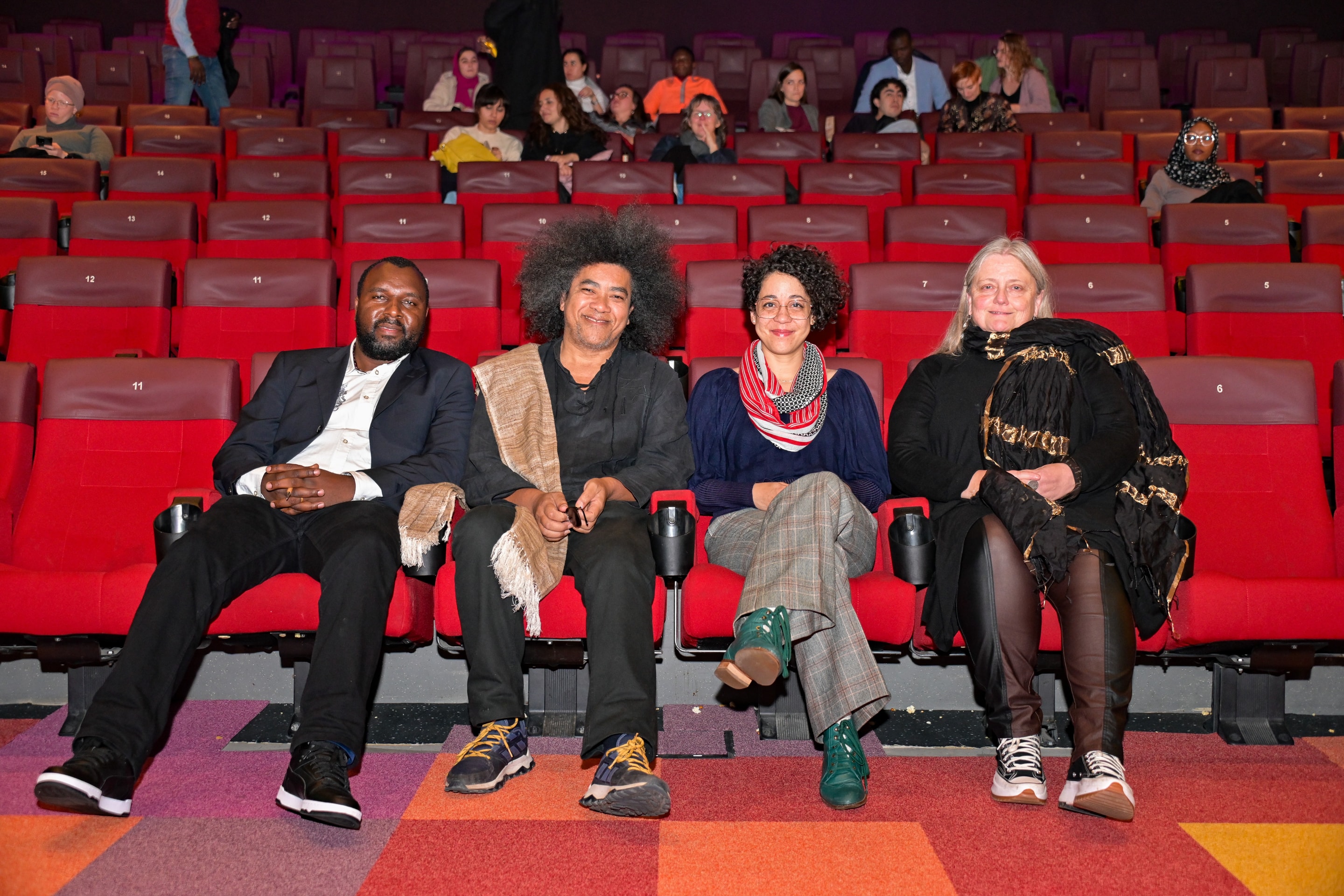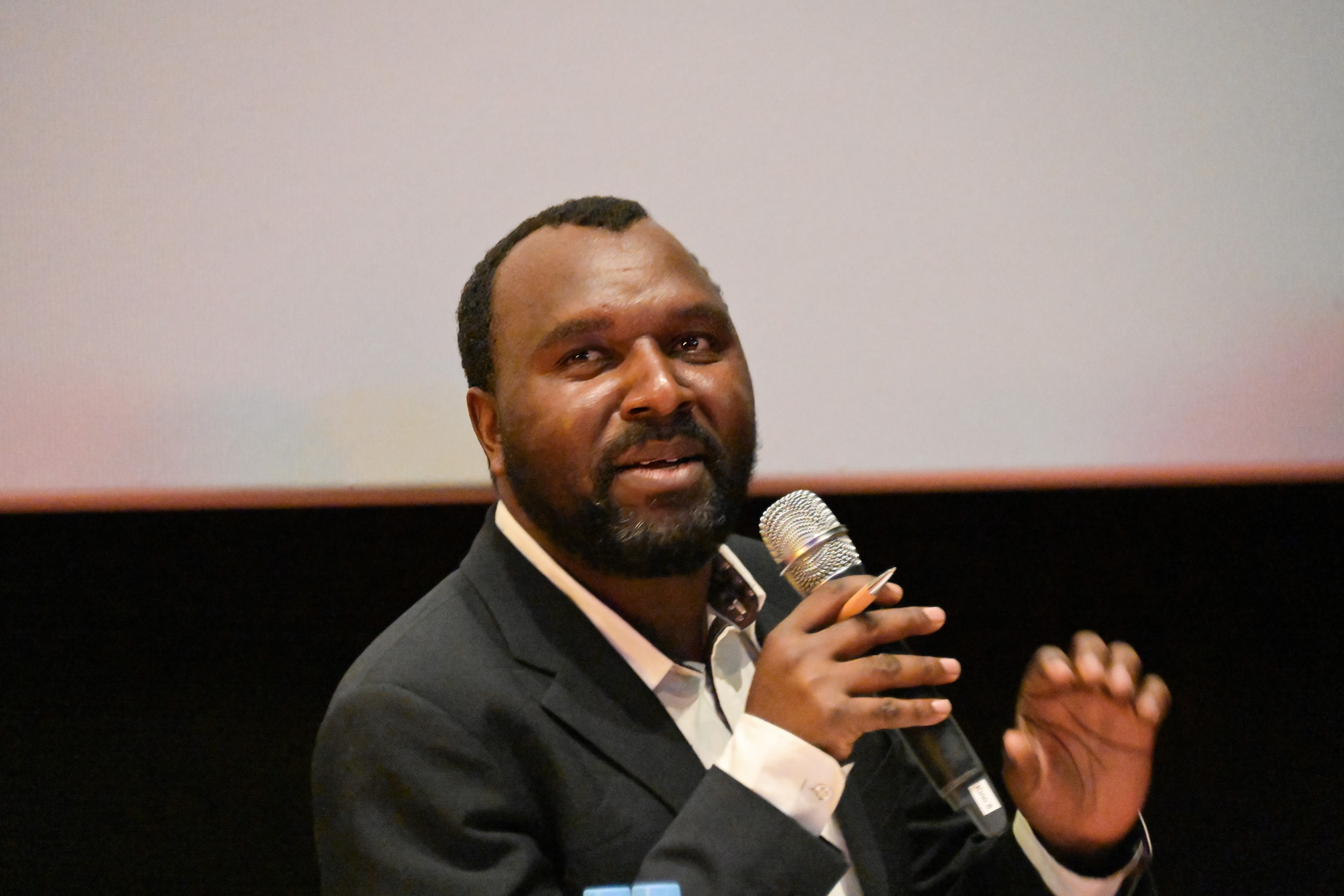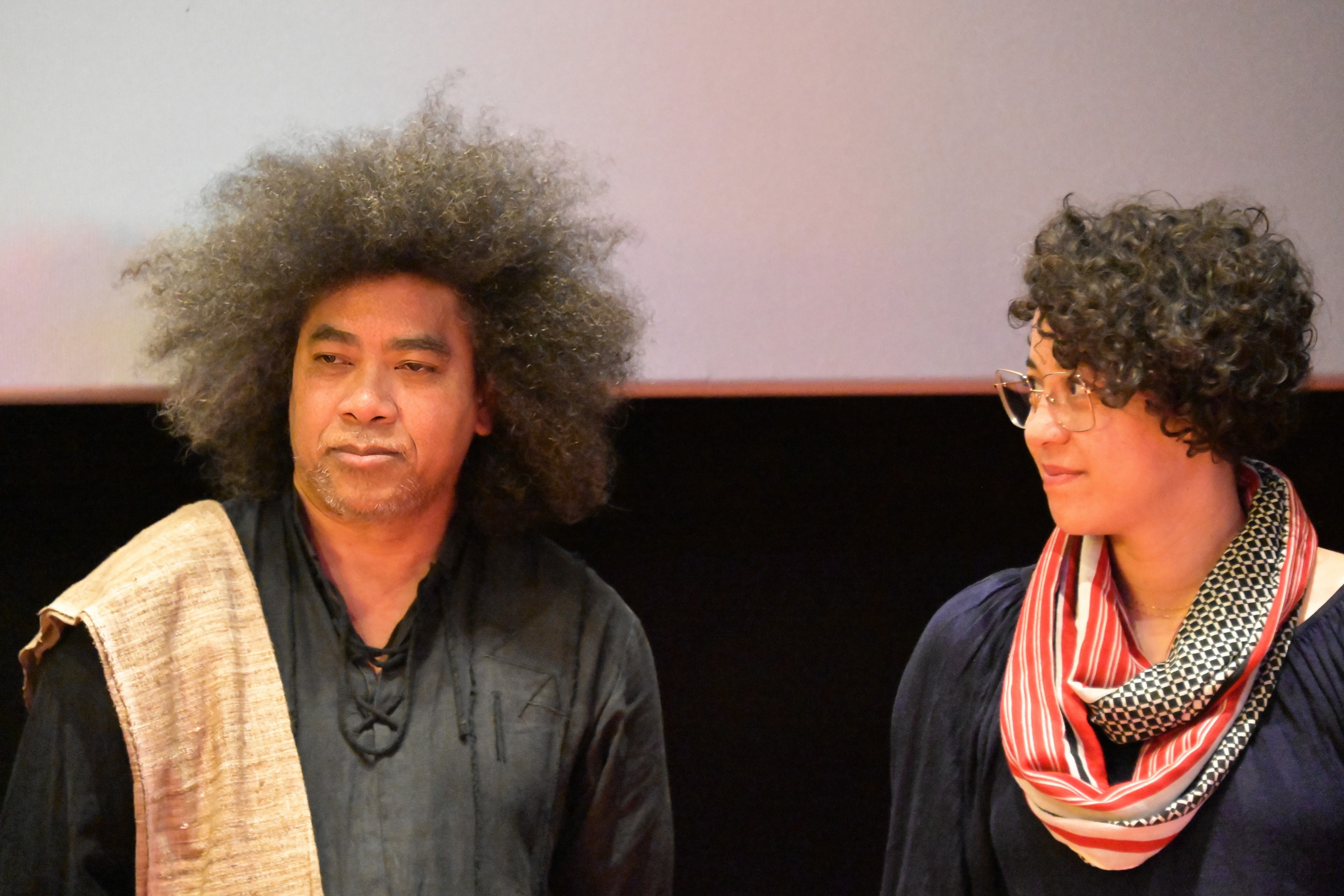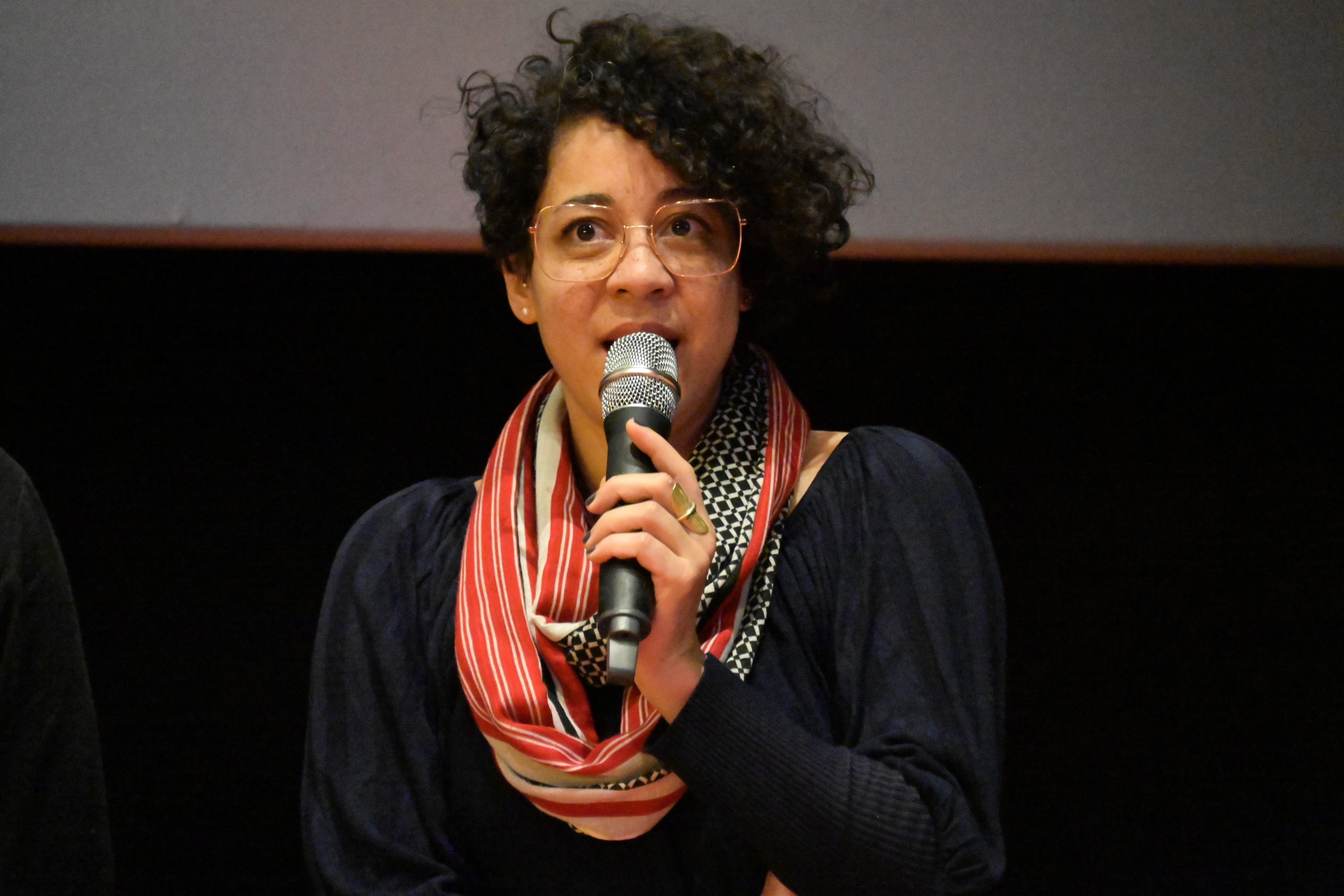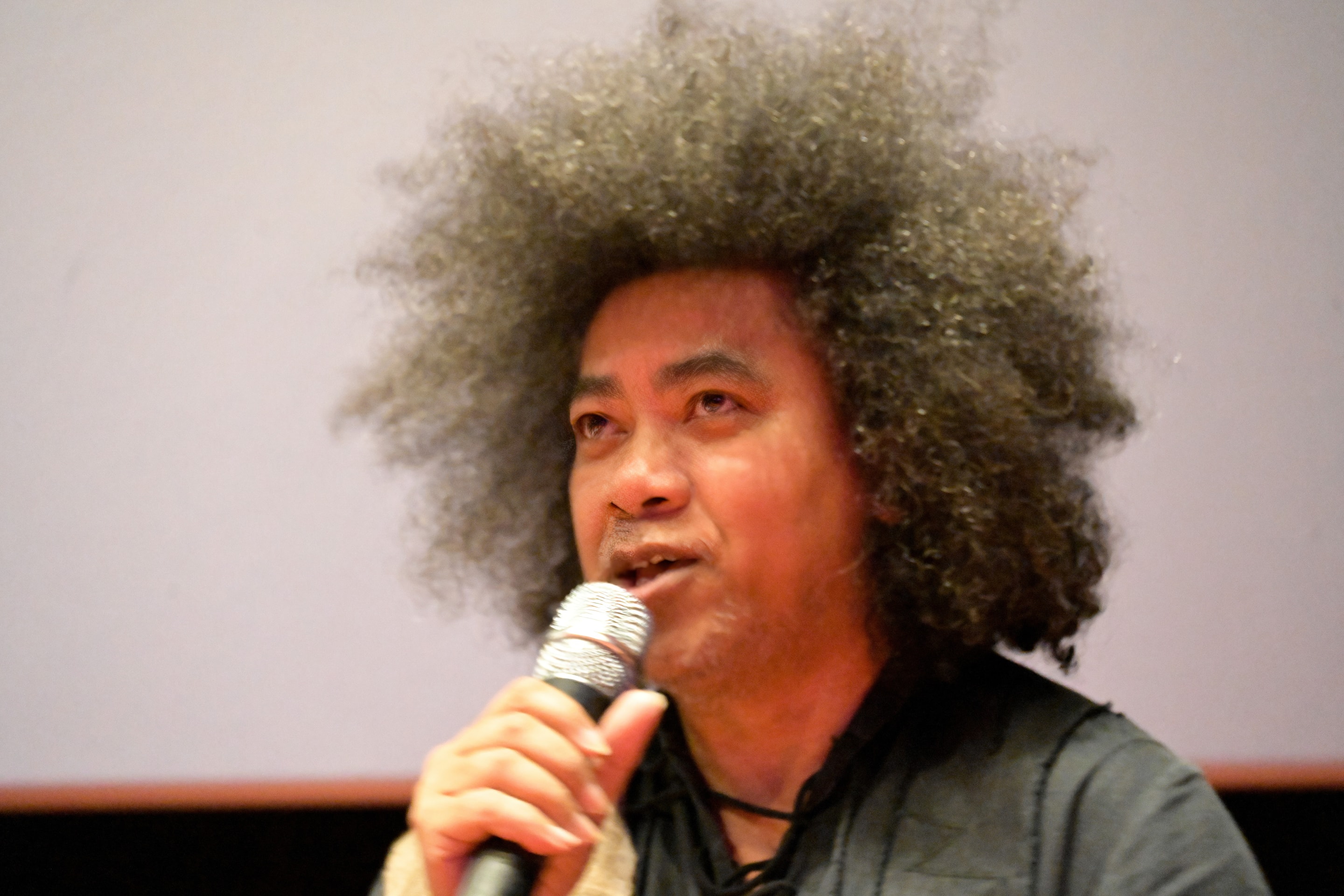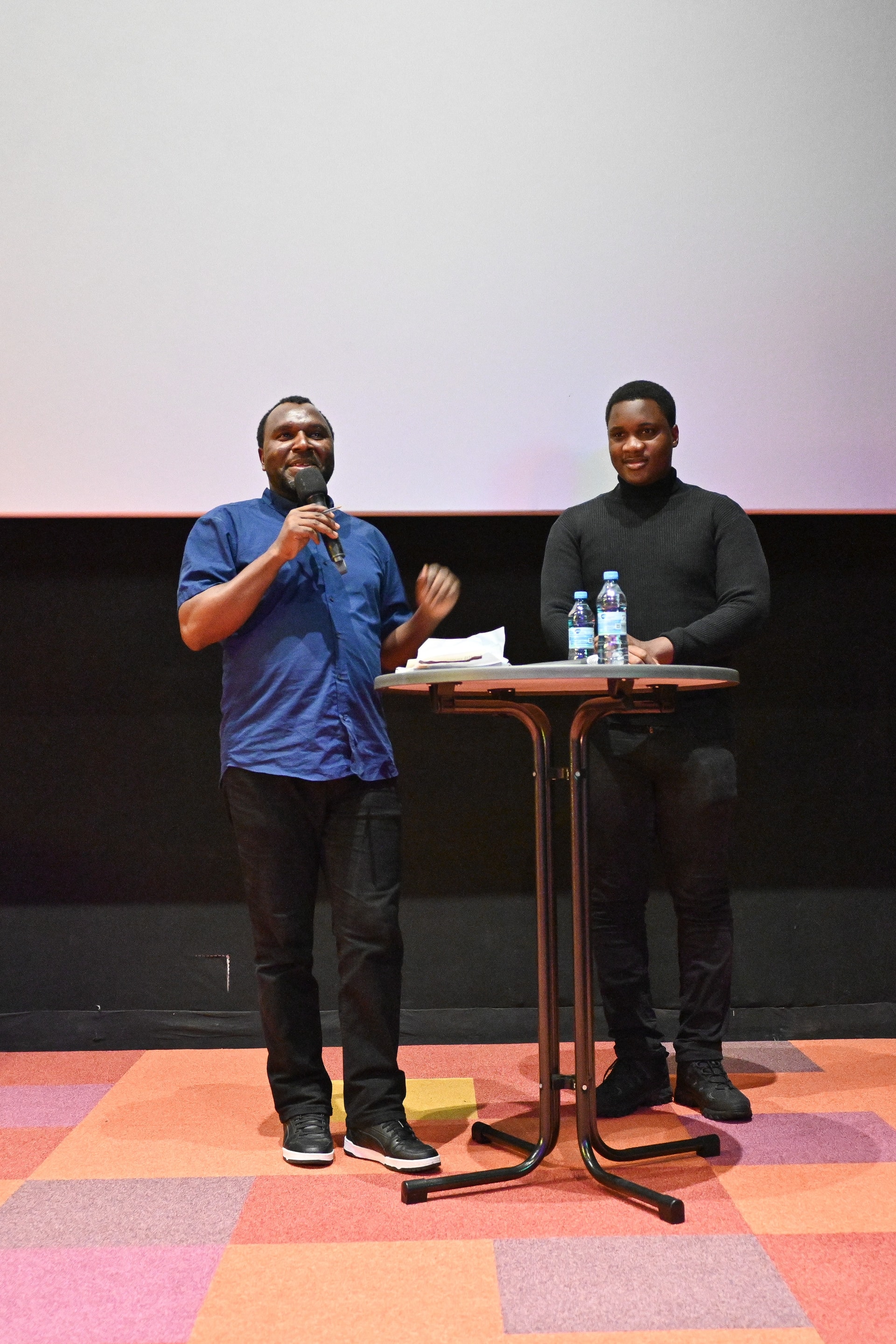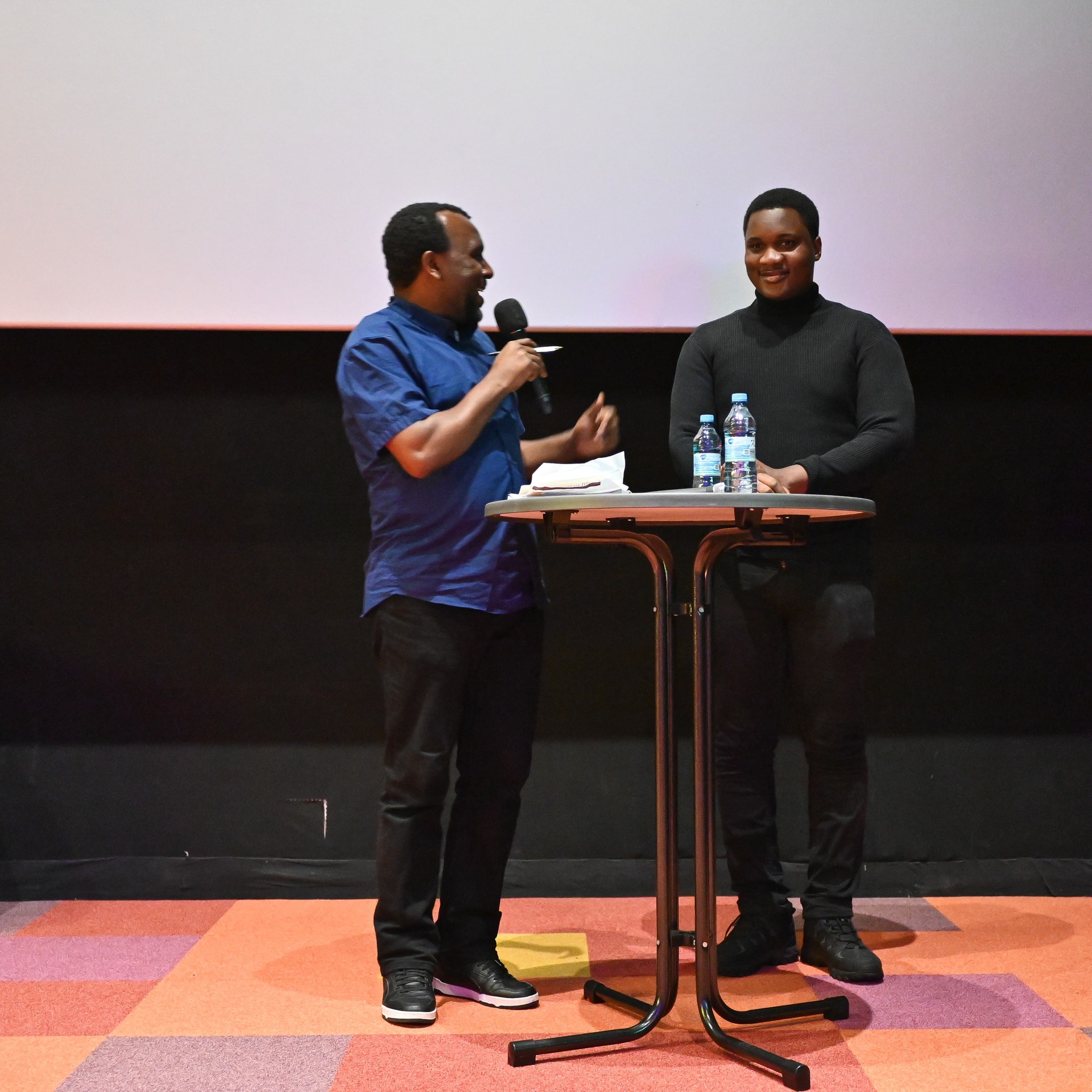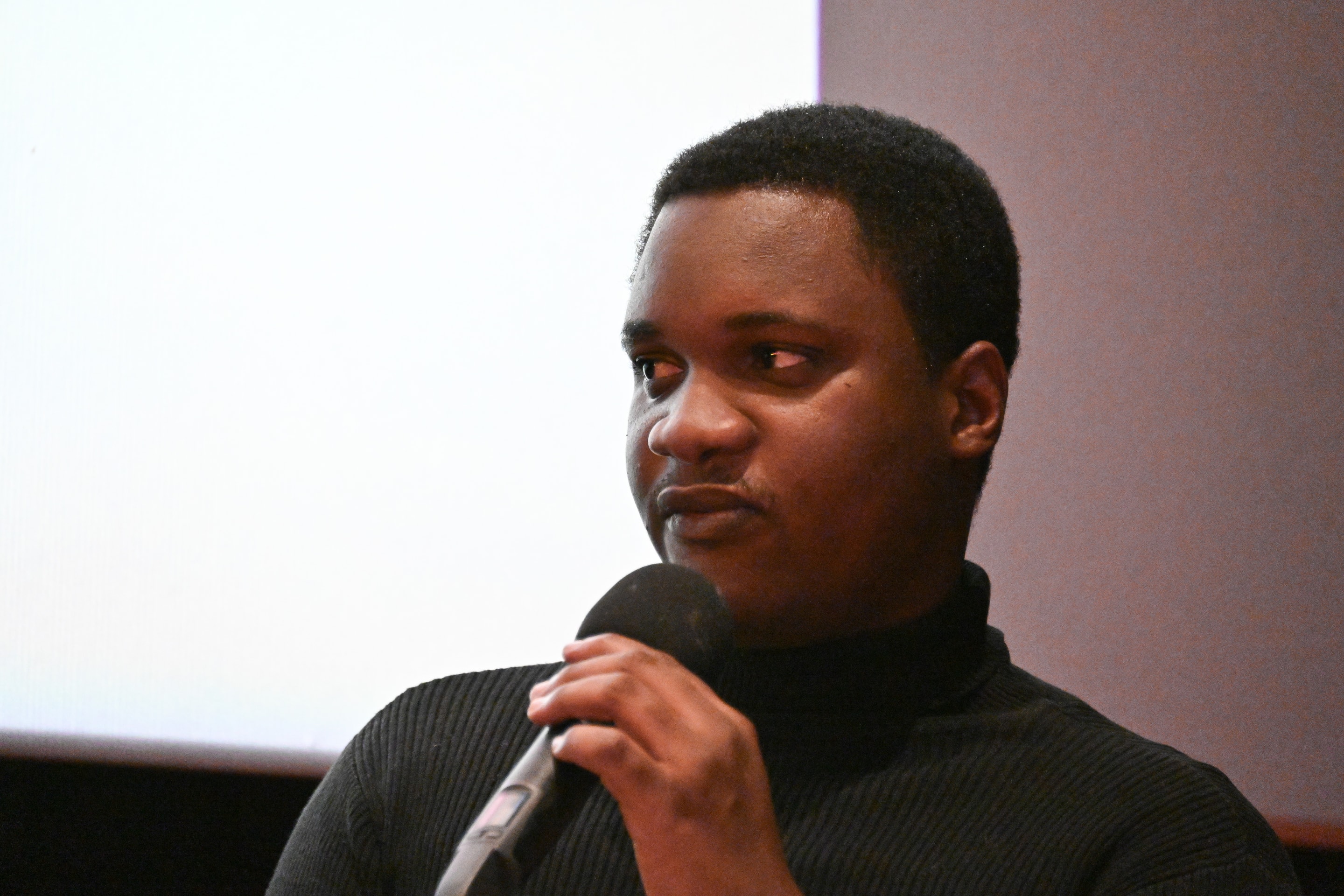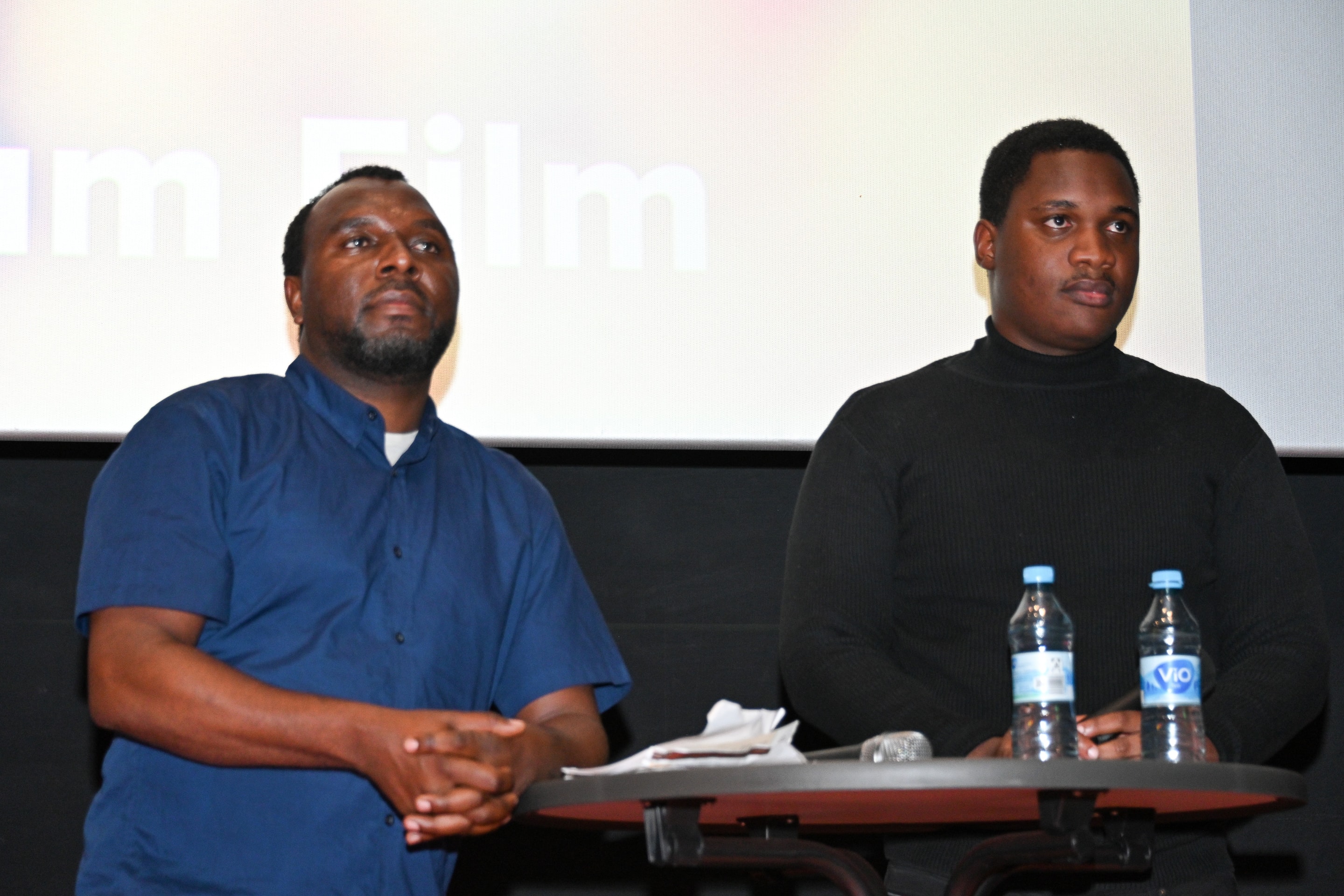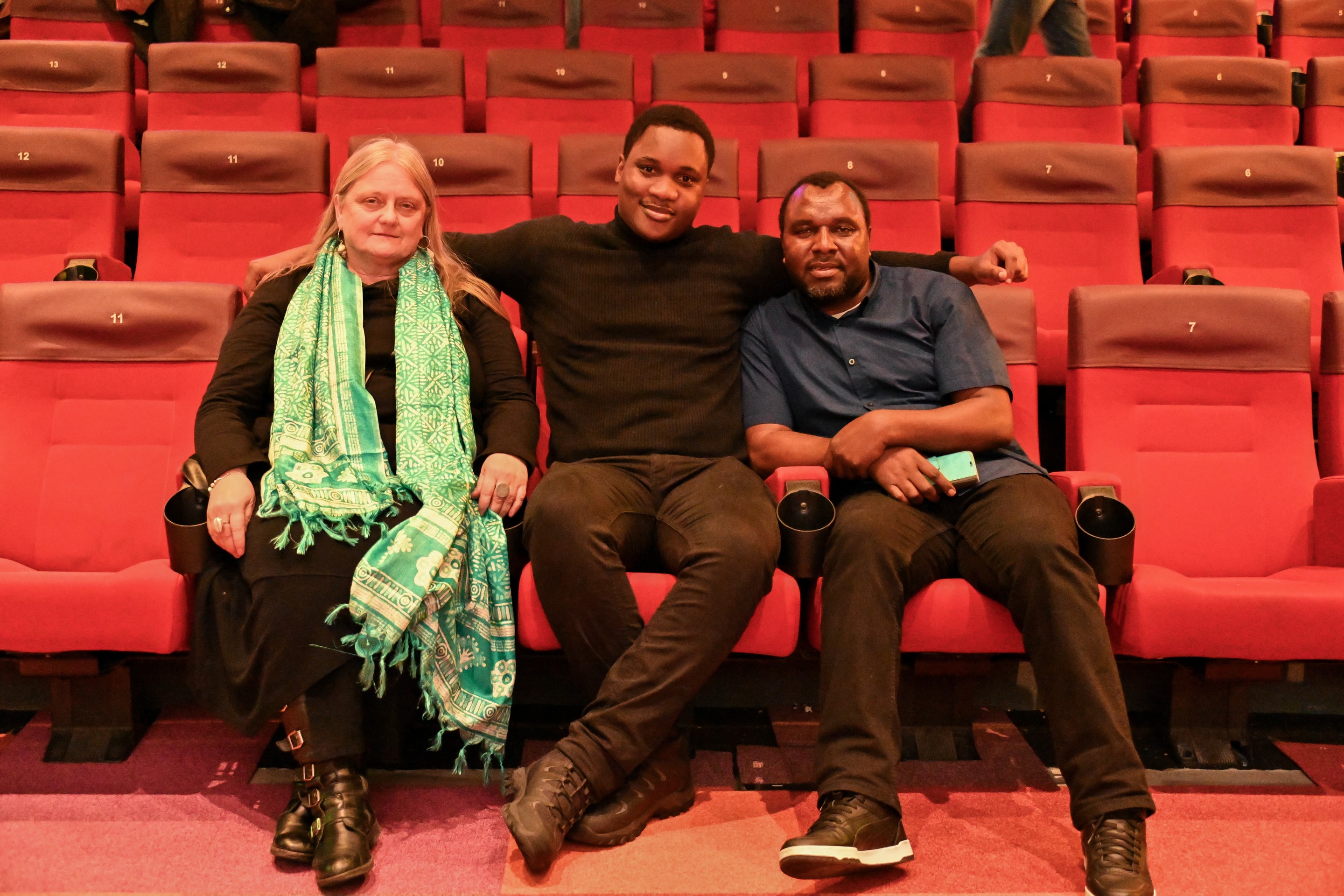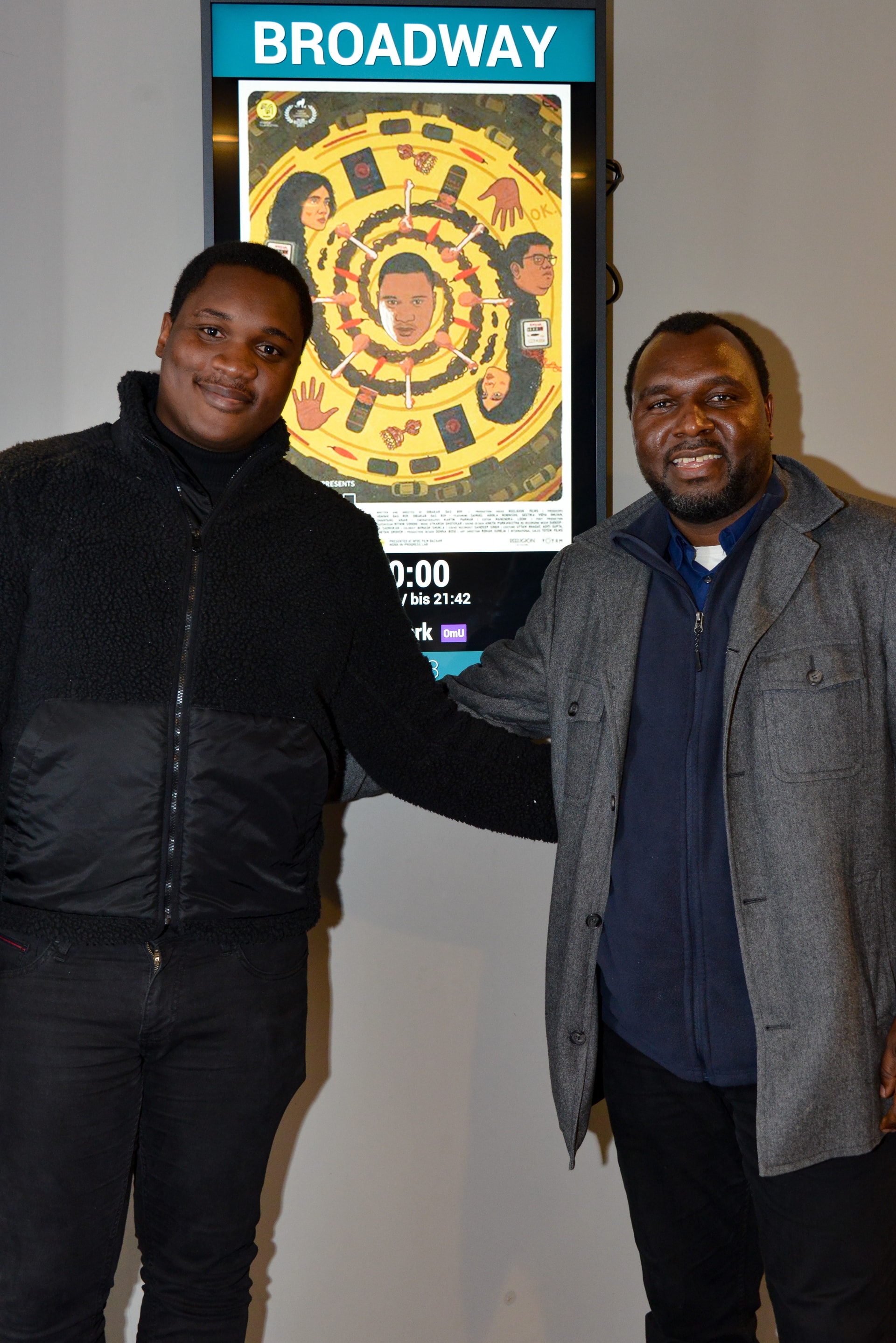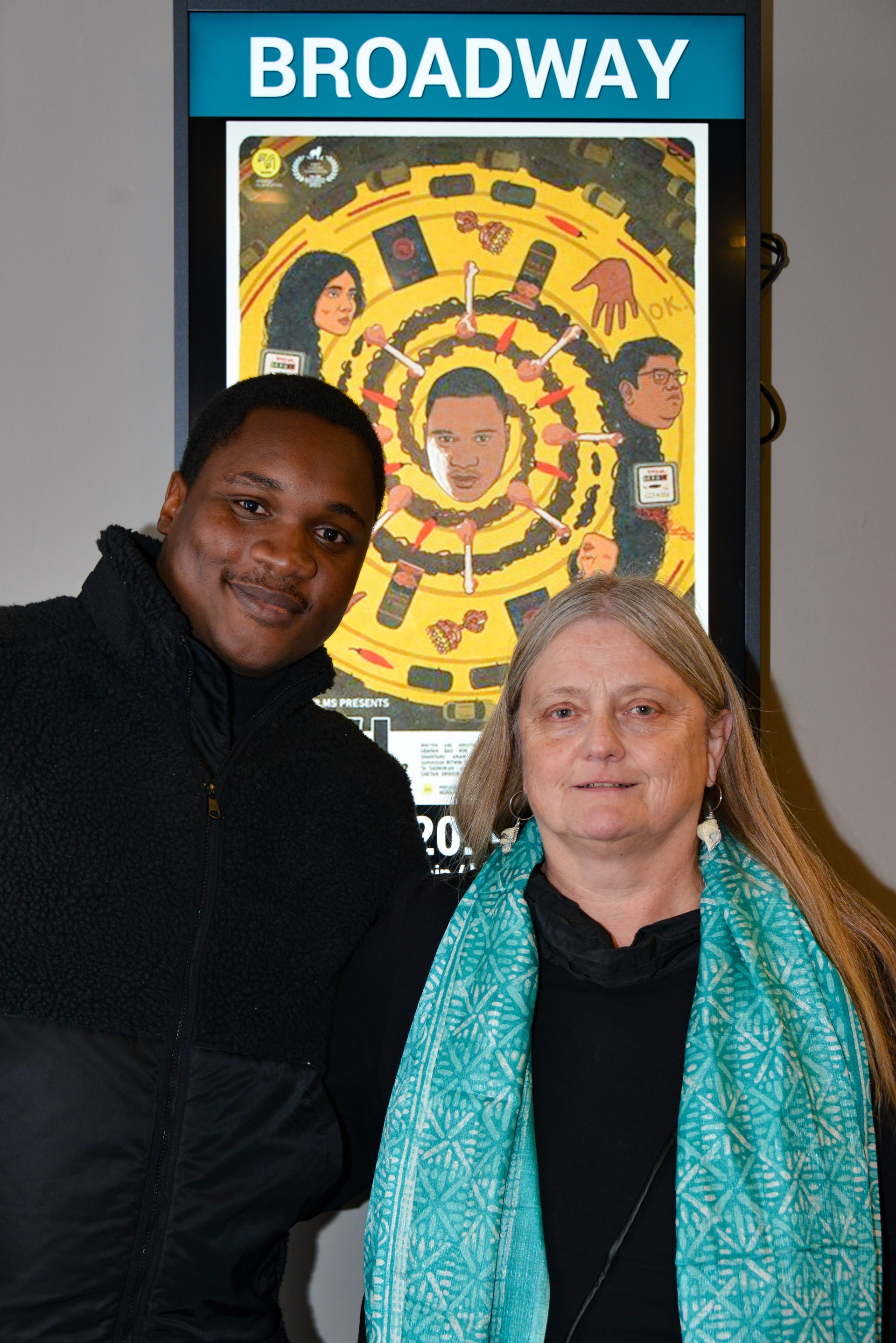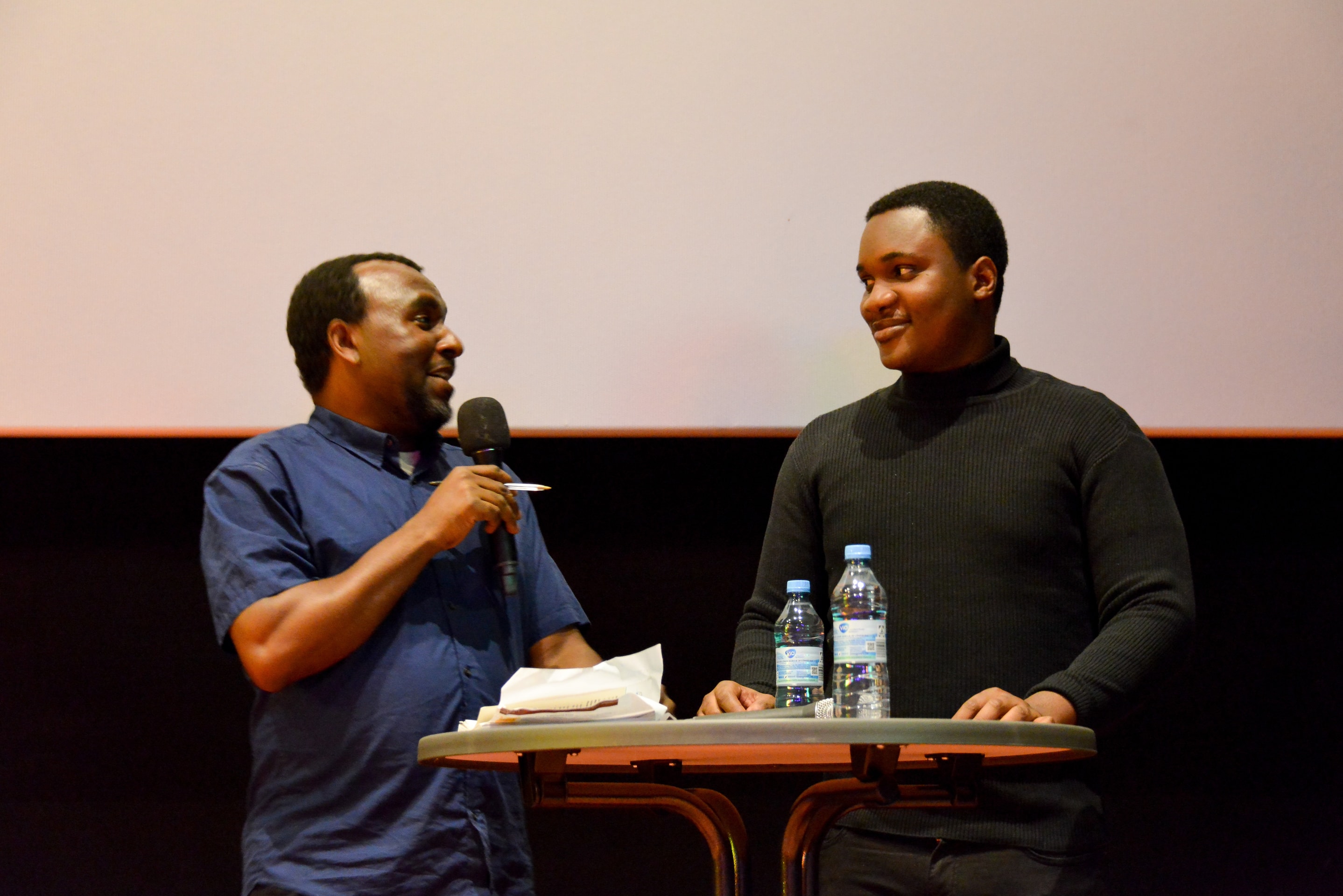News
Celebrating African Narratives: The Africa Multiple Cluster of Excellence's Cinema Africa Screenings (Oct 24–Jan 25)
10.12.2024
For the 2024/25 edition of Cinema Africa there were a few new modalities. For the first time, the festival was stretched out over the course of a few months showcasing the impressive number of eight African films.
Text: Sabine Greiner
The Africa Multiple Cluster of Excellence at the University of Bayreuth has been a driving force in fostering a deeper understanding of African cultures and narratives through its annual Cinema Africa film series. The 16th edition, held over October, November, and December 2024 – and continuing in January 2025 –, has brought together a carefully curated selection of films, showcasing the vibrancy, diversity, and depth of African cinema as well as the intricacies of African-Asian relations. For the first time, the festival’s organizer and curator Prof. Dr. Ute Fendler expanded the screenings over four months, offering audiences more time to reflect on and engage with the thought-provoking stories presented.
The Cinema Africa screenings are more than just film showings; they are a cultural event. Each film offers a window into the contemporary realities, histories, and imaginations of African filmmakers. What sets the Cinema Africa series apart is its commitment to dialogue. Each screening is accompanied by opportunities for the audience to engage with stakeholders of the respective film, cultural experts, and scholars. These conversations bridge the gap between academic research and artistic expression, fostering a deeper appreciation of African cinema as a tool for storytelling and social change within the academic community and beyond.
Once more, the lineup of this latest edition has not disappointed, featuring compelling narratives that traversed themes of identity, migration, history, and love.
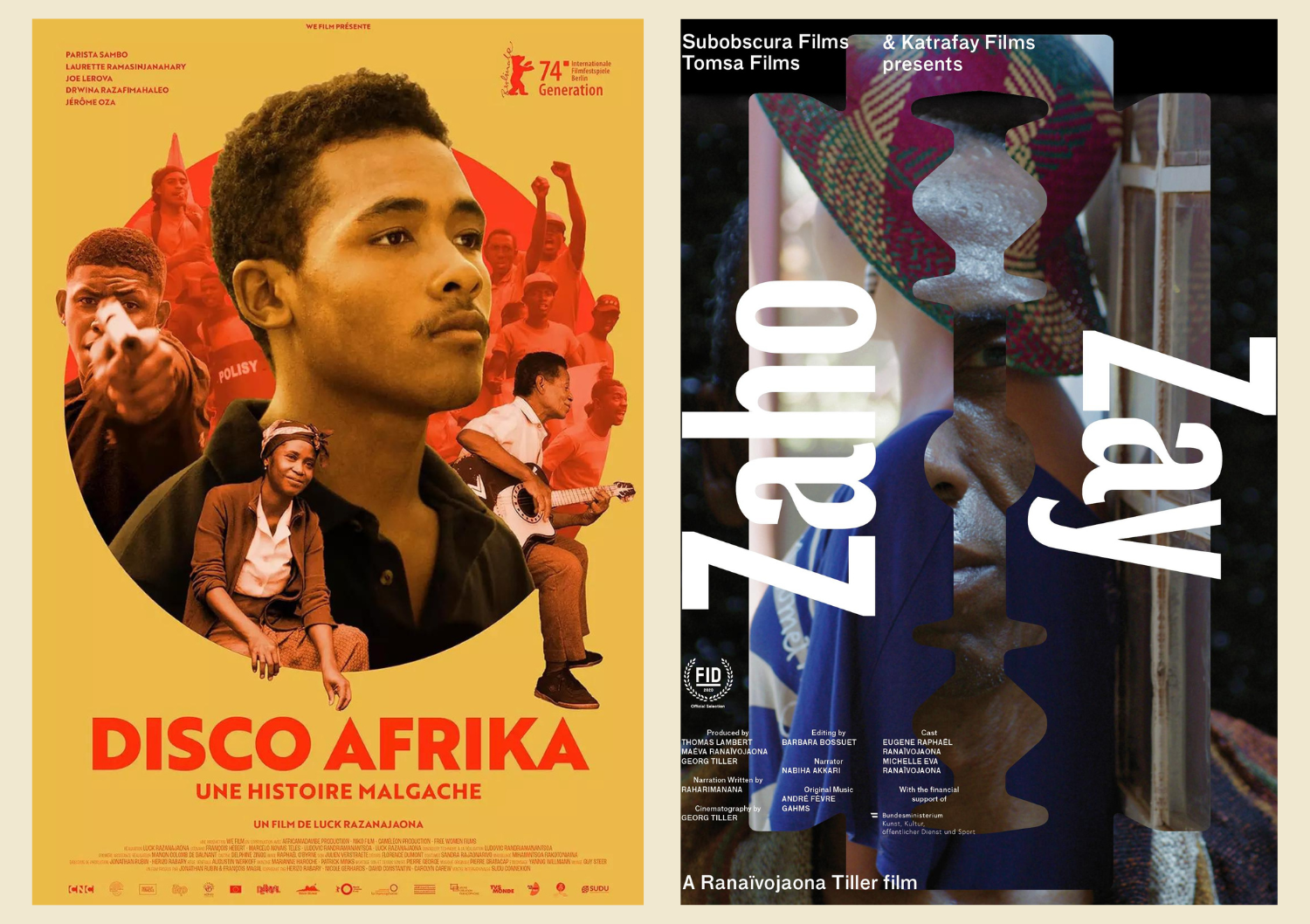
October Screenings
The series opened on October 14, 2024, at Cineplex Bayreuth with two notable films that set a high bar for this edition.
Disco Africa – A Malagasy Story: Directed by Luck Razanajaona, this gripping film follows the journey of Kwame, a 20-year-old returning to his hometown in Madagascar after spending years working in clandestine sapphire mines. The narrative dives deep into themes of corruption, the scars of colonialism, and the resilience of African civil rights movements in the 1970s. The vibrant visual storytelling, set against the backdrop of Madagascar’s unique cultural landscape, captivated audiences and sparked meaningful post-screening discussions.
Zaho Zay: Co-directed by Maéva Ranaivojaona and Georg Tiller and scripted by Jean Luc Raharimanana, Zaho Zay masterfully blends documentary and fiction to tell the story of a female prison guard in Madagascar. As the protagonist reflects on her estranged father, a figure shrouded in myth as a brutal murderer, the film explores themes of memory, loss, and identity. This hauntingly poetic work invited viewers into a space of contemplation, with its layered narrative eliciting a powerful emotional response. Director Maéva Ranaivojaona and writer Jean Luc Raharimanana were present for a vibrant discussion afterwards, offering insights into the creative process and the cultural influences behind the film.
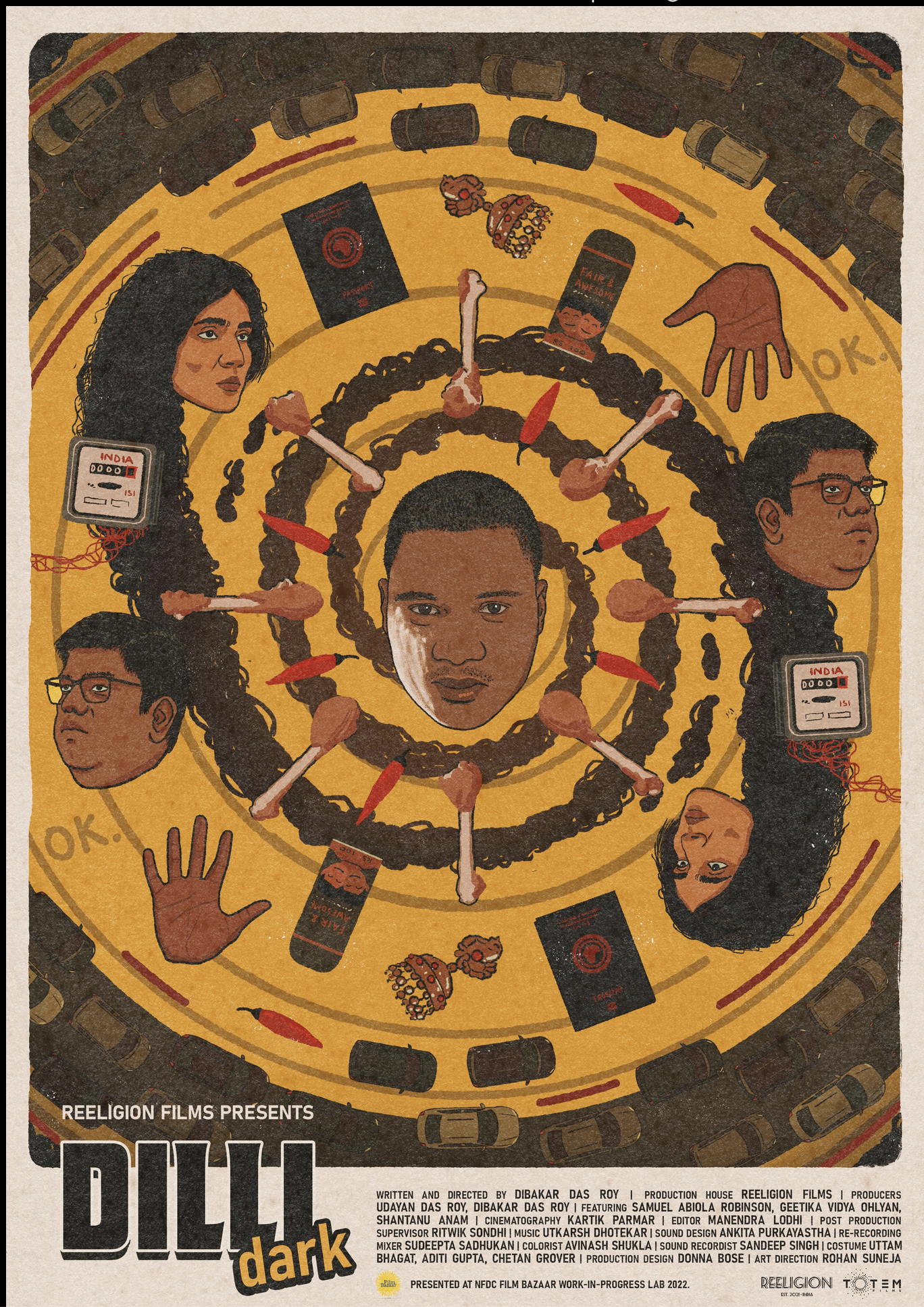
November Presentation
November’s lineup on 11 November featured Dilli Dark – a black comedy by Indian filmmaker Dibakar Das Roy. The movie follows Michael Okeke, a Nigerian student in the vibrant metropolis of New Delhi, who dreams of an MBA and a new home in India. Every day, however, he realizes that his city is bigger than his dreams. In the midst of the urban hustle and bustle, he struggles to find his place and hope of belonging. Following Okeke’s journey the audience gets glimpses of an Indian society full of hypocrisies and racism.
The protagonist Okeke was portrayed by Samuel Abiola Robinson who was present in Bayreuth taking the audience’s questions and talking about his life and experience as a Nigerian actor living in New Delhi. He also sat down to talk with the festival’s curator Ute Fendler, the video may be watched below.
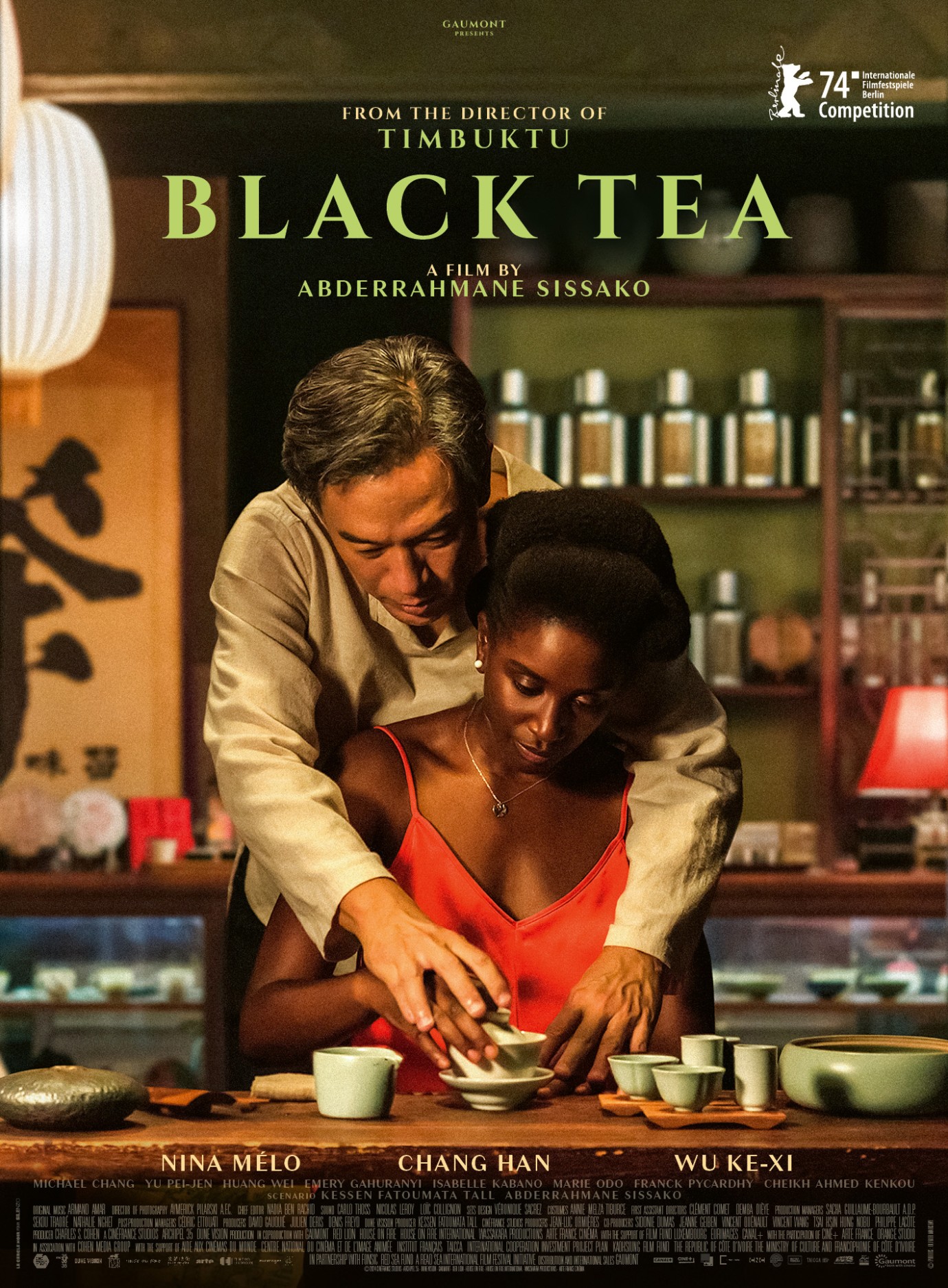
December Screening
The festival continued on December 9, 2024, with the screening of the much-anticipated film, Black Tea. Directed by the internationally acclaimed filmmaker Abderrahmane Sissako, this poignant love story explores the intersection of cultures, identities, and the challenges of belonging.
Set in Guangzhou, China, Black Tea tells the story of Aya, a young woman from Côte d’Ivoire, who falls in love with Cai, a middle-aged Chinese man. Through their relationship, the film navigates themes of cultural dissonance, societal prejudice, and the complexities of migration. Known for his visually stunning and socially conscious storytelling, Sissako once again delivers a work that transcends borders, drawing attention to the often-overlooked Afro-Chinese connections. This film, which was part of the competition at the 74th Berlin International Film Festival in 2024, left the audience reflecting on the intricacies of globalized identities.
Cinema Africa 2024/25 continues in January 2025
Prof. Dr. Fendler, who holds the Chair of Romance and Comparative Literature at the university, emphasized the importance of this cultural exchange, aiming to present a diverse spectrum of African cinematography and storytelling to audiences in Germany: “It’s the festival’s core vision to bring African voices to a broader German audience – a vision that aligns perfectly with the objectives of the Africa Multiple Cluster of Excellence at the University of Bayreuth.”
The festival will continue starting Sunday, 26 January 2025, when Cinema Africa will continue with four consecutive days of African narratives screened at Cineplex Bayreuth. All filmmakers – except Wall Street Boy's Charles Uwagbai – will be present to engage with the audience:
- 26.01.2025, 8 pm – Goodbye Julia
- 27.01.2025, 8 pm – Nome
- 28.01.2025, 8 pm – The Wall Street Boy
- 29.01.2025, 8 pm – The Village Next to Paradise
Conversation with Samuel Robinson - main actor in the film "Dilli Dark"



